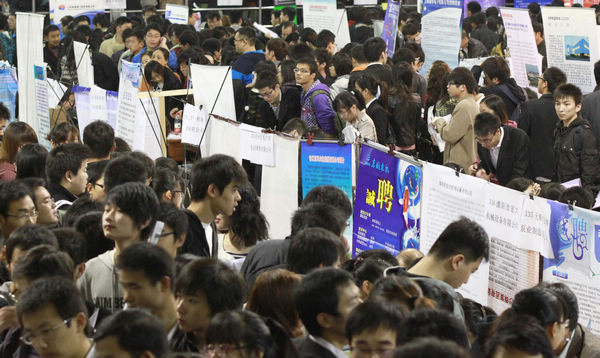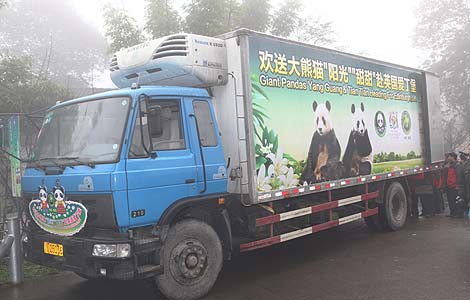Zhejiang keeps closer eye on smaller private biz
Updated: 2011-12-09 07:44
By Yu Ran (China Daily)
|
|||||||||
 |
|
Students of Jiangsu University throng a job fair at Zhenjiang, Jiangsu province. Yang Yu / for China Daily |
SHANGHAI - Regular monitoring of small and medium-sized enterprises (SMEs) will be expanded in Zhejiang province to avoid the sudden flight of business owners and labor disputes in the coming New Year and Spring Festival.
Under the initiative, SME's turn in detailed monthly reports on their business performance, whether salaries have been paid on time, and the employment situation. The program will be expanded to cover 11 cities by the first quarter of next year.
In addition, the province intends to monitor more SMEs in the cities like Wenzhou, Yiwu and Taizhou because many of the private businesses in those cities have financial problems.
"We started expanding the SME monitoring in September, doubling the number of SMEs from 300 to 600, and adding more questions about solvency to the forms," said Hou Siyang, an official from employment service department of the Wenzhou bureau of labor and social security.
"Because of the rapid increase in the number of runaway business owners in the past months - especially since April - we have to pay more attention to SMEs, particularly financially strapped mini enterprises," said a senior officer from Zhejiang provincial bureau of employment management and service who gave his name only as Ren.
According to the provincial government, a record 228 business owners fled in the past three quarters because they were unable to meet their financial obligations. More than 14,600 employees were not paid overdue wages totaling 75 million yuan ($11.7 million) in that period.
In December 2004, the Zhejiang provincial government started an emergency fund to help enterprises pay the overdue wages. To date, the fund has gathered more than 550 million yuan.
"Emergency funds for overdue wages have been used to pay the employees for over 42 million yuan in the past nine months alone, while the average annual use of the funds has been about 10 million yuan," said Ren.
Companies seem to welcome the government's tighter supervision of SMEs' business details.
"We definitely will do as much as we can to assist the government's work, and we believe it's a good way for us to stay aware of existing and potential financial problems," said Ye Mingchun, owner of Zhejiang Tianyiqi Shoes.
The enterprises being monitored have already become accustomed to regular reporting of their business performances but not all of them know whether the tightened monitoring work will benefit them.
"We have to collect the data on how well or poorly the company has performed in the past month, then hand it to the municipal government, but we've never understood what was being done with it," said Chen Xi, the manager of Wenzhou Dongyi Shoes, a mid-scale shoe exporter.











